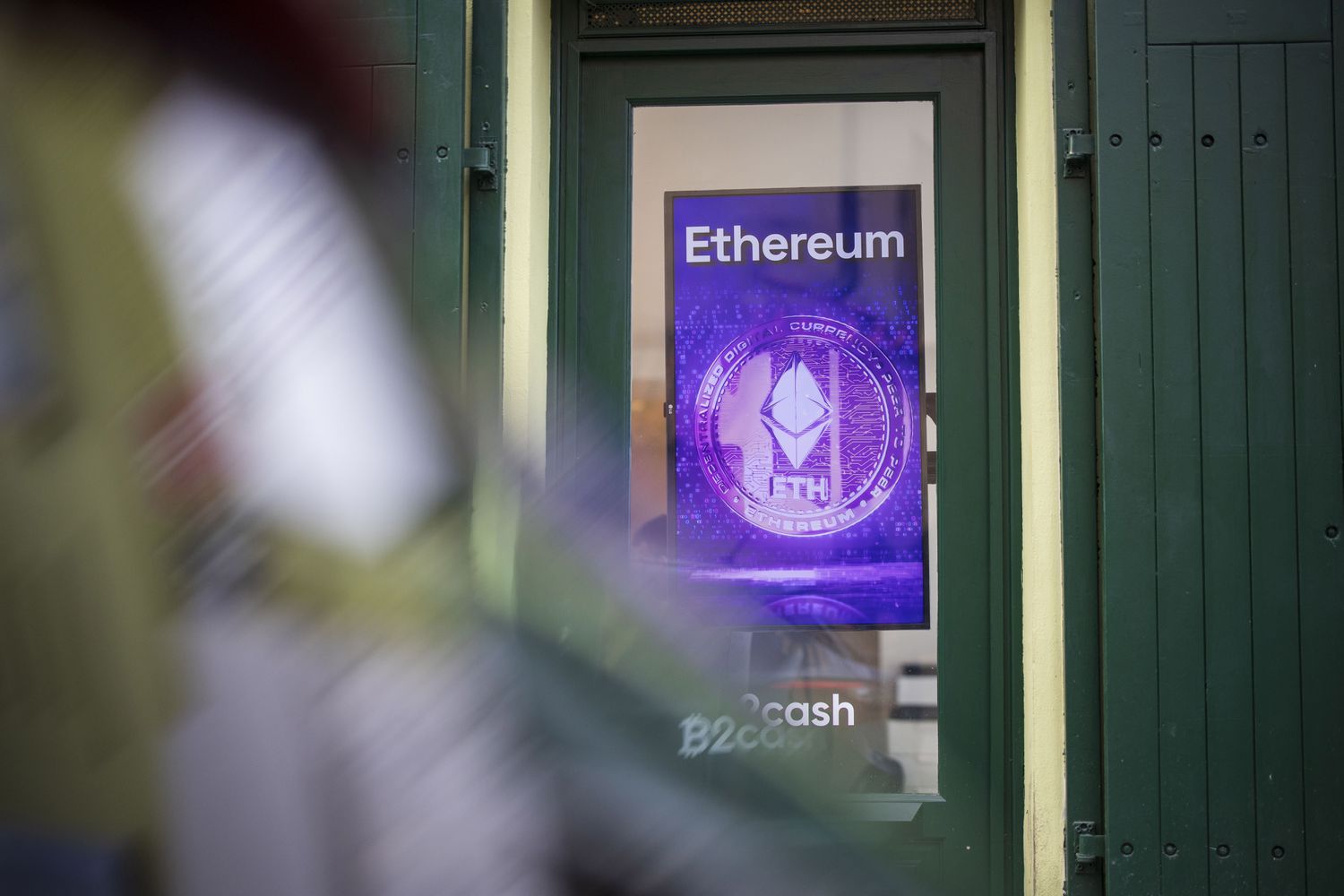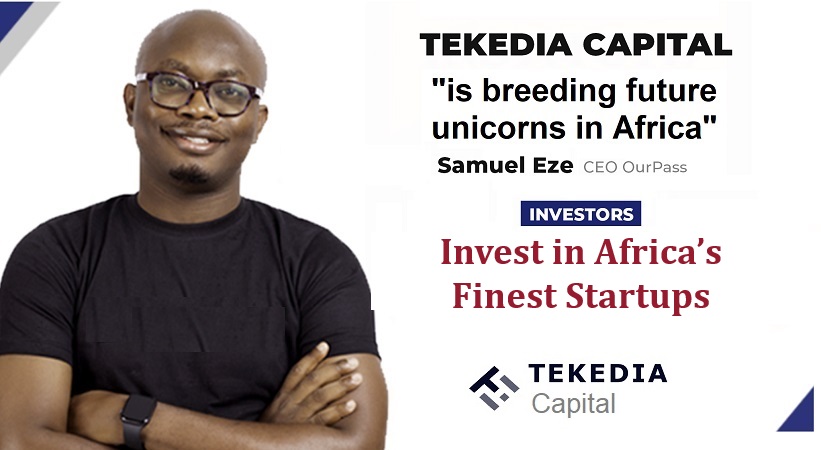News
What Is Ether (ETH), the Cryptocurrency of Ethereum Apps?

Ethereum and ether (ETH) are terms used for the ether digital currency, but that’s not quite right. Ethereum is the blockchain-based platform behind everything from financial transactions to digital art sales, all thanks to its coding language. By contrast, ether is the name of the cryptocurrency that fuels this digital ecosystem.
Understanding the distinction is a starting point for anyone looking to explore the world of digital assets. Below, we discuss the most important aspects of this cryptocurrency.
Key Takeaways
- Ethereum is a blockchain and distributed platform that allows anyone to create blockchain-based applications.
- As of May 2024, Ether (ETH) is the world’s second-largest cryptocurrency, with a market cap of about $380 billion.
- Ether pays for on-chain Ethereum transactions but can also be used as an investment, off-Ethereum payment method, or for trading on other crypto exchanges.
- Investors can also speculate on the price of ether through ether futures ETFs.
What Is Ethereum?
Ethereum is a decentralized development platform using blockchain technology. It was created to provide a base for building applications, cryptocurrencies, tokens, and other tasks needing distributed and secure databases.
With Ethereum, you can tokenize various types of information, from passwords and personal data to finances, real estate, and debt. Tokenization requires cryptographic techniques to secure and track ownership within the blockchain databases. The blockchain includes snapshots of the entire database, the cryptographic hash, and places them securely in each new block, making it impossible to alter past records.
Ethereum runs on a global network of computers (nodes) that work together to run programs called smart contracts and decentralized applications (dApps). This distributed network, powered by the Ethereum virtual machine (EVM), evades control of this information within a single system or entity, which is the decentralization blockchain proponents find crucial.
Developers use the EVM to build a wide range of dApps, including those with uses across society:
- Finance: dApps like Uniswap and Compound allow users to trade tokens or engage in decentralized finance (DeFi) directly from their digital wallets without the need for traditional banks. Imagine swapping tokens or securing a loan at any time, even in the middle of the night.
- Gaming: Ethereum hosts games like Axie Infinity, where players breed and battle digital creatures while earning rewards. It also powers virtual worlds like Decentraland, where users can buy virtual land, attend events, and socialize.
- Governance: Ethereum is also a base for decentralized autonomous organizations (DAOs) like MolochDAO. These organizations use smart contracts to make community decisions, which proponents say eliminates the need for traditional forms of governance.
While blockchain offers enhanced security, it’s important to remember that Ethereum isn’t resistant to every threat.
Ethereum is part of a movement toward a more decentralized internet that provides increased anonymity and security.
What Is Ether?
Ethereum, like any complex system, needs resources to function. It’s a distributed network, meaning there’s no central owner, but the computers (nodes) that keep it running need power and other resources to run. This requires some method of compensating for these costs. Think of it like paying your internet bill—someone has to pay for the service.
That’s where ether, Ethereum’s cryptocurrency, comes in. When you use Ethereum for an application or transaction, a small fee is paid in ETH. These fees cover the expenses of those running the nodes, like electricity and hardware. They also act as an incentive for people to contribute the use of their computer systems as a node in the wider EVP.
When discussing Ethereum’s price, you’re talking about the value of ETH. Ether is the payment method in the EVM and is used to pay network participants for the expenses (and a little extra) they incur for securing the blockchain and validating transactions.
Ether Uses
Ether has a market value that can be checked on any cryptocurrency exchange and most financial platforms. You’ll often see the name Ethereum, even though the data is for ether, the currency.
You can use ether to pay for goods or services at participating merchants and retailers. Investors, of course, trade ether for speculation, the quest to make money with money. They use strategies like those found in the stock market, such as buying and holding, day trading (buying and selling ETH throughout the day to capitalize on short-term price changes), scalping (making many small trades to profit from tiny price fluctuations), and arbitrage (taking advantage of price discrepancies between different ether exchanges).
(For more, see Investopedia’s Crypto Strategy and Education gateway.)
Like all cryptocurrencies, ether is volatile and has wide price swings. Therefore, any product derived from it is susceptible to the same swings.
How to Buy Ether
Although ether is the native cryptocurrency for Ethereum, it is also found on most cryptocurrency exchanges. You can find it on popular exchanges like Coinbase, Kraken, Gemini, Binance.US, and KuCoin.
To buy ether, you need a wallet compatible with your chosen exchange or use that exchange’s wallet. Generally, you link a bank account with your wallet and transfer funds to the exchange to begin trading.
Should You Invest in Ether?
Whether to buy crypto was once only a question for a few tech enthusiasts and early adopters, but now it’s commonly asked by many mainstream investors. How you answer depends on what you want to use it for. For instance, if you want to shop online with fewer entities knowing what you’re doing, ether is an excellent way to do that. You only need to buy the amount of ether you’ll need and spend it at an online retailer that accepts it. However, factor in the transaction fees Ethereum charges—you may pay a few dollars in fees for the convenience, plus sales tax.
If you’re considering investing in ether, it’s prudent to talk to a professional financial planner and discuss how ether might work as part of your portfolio. Cryptocurrencies are volatile, so it helps to have a professional’s assistance. To invest in ether, you could put money into companies developing products using Ethereum. For example, ConsenSys, a blockchain software company, builds tools and applications directly on the Ethereum platform. Others, like Microsoft Corporation (MSFT) and Amazon.com Inc. (AMZN), have been using Ethereum-based products for identification security and supply chain tracking for about a decade. Meanwhile, gaming firms, such as the developers of Decentraland and Axie Infinity, utilize Ethereum to create virtual worlds and digital experiences.
Ether Futures ETFs
Advantages and Disadvantages of Ether Futures ETFs
Pros
-
An easier way to invest in ether
-
No need to worry about safely storing the currency
-
ETFs are regulated investments
Cons
-
Ether can only be tracked with derivatives contracts
-
Returns may not mirror the returns from ether
-
Expense ratios can be high
-
ETF holdings are tied to the value of ETH, which is not a regulated investment
Trusts and funds from firms like Grayscale Ethereum Trust (ETHE), a publicly traded company that manages crypto-based exchange-traded funds (ETFs), are also available. These provide investors with exposure to ether without needing to purchase or store the cryptocurrency directly. ETHE is traded over the counter, meaning you can trade shares through your regular brokerage account. Its ETFs are also available that way.
Typically, ETFs track the price performance of their subject by investing in a portfolio of them. However, the U.S. Securities and Exchange Commission (SEC) has prohibited ETF managers from directly holding ether in their portfolios. However, the SEC has allowed ETFs to hold a portfolio of futures contracts tied to the expected prices of ETH. Futures are contracts to buy or sell an asset at a preset price on a given date. By holding these contracts, the ETF provides a means for mainstream investors to speculate on the value of ether through regulated exchanges in the U.S.
Ether futures ETFs like the VanEck Ethereum Strategy ETF (EFUT) and the ProShares Ether Strategy ETF (EETH) began trading in October 2023. Their debut was underwhelming. However, once spot bitcoin ETFs were approved a few months later, interest in crypto and the value of ETH spiked. In short order, EFUT and EETH nearly doubled their post-listing returns. Soon enough, though, their value pulled back significantly but still above their October 2024 pricing, demonstrating the volatility of crypto-related securities.
Two notable drawbacks of futures ETFs are higher fees than holding crypto directly (derivatives bringing more managerial complications), which can produce less returns than the target asset. To invest, find a broker that offers these types of ETFs, then open an investment account and start trading.
Ether Spot ETFs
Ether ETFs can only invest in futures contracts, not ETH tokens. Fund managers like VanEck, Grayscale, and Fidelity want to change that, having applied to the SEC to offer ETFs that directly hold ether.
Once spot bitcoin ETFs were approved, proponents thought the SEC might look more favorably on the idea than it had previously when it rejected earlier spot ETH ETF proposals. In recent years, the SEC has ramped up its enforcement of digital assets (doubling the size of its crypto investigations unit in 2022 and 2023). As we’ve reported, it thus seems the regulator is less, not more, inclined to allow spot ether ETFs. Unlike bitcoins, which are classified as commodities and hence regulated by the Commodities Futures Trading Commission, the SEC thinks ether might be more like a security than its crypto cousin, which could further hold up ETH ETF proposals. Meanwhile, the SEC hasn’t given up its well-known skepticism about crypto as investments.
If ETH is a security, all the SEC’s relevant regulations on trading them would apply, including transparency rules, not just when trading ether but also before a spot ETH ETF could trade on U.S. exchanges. The crux of the issue appears to be one major difference between Ethereum and Bitcoin, which is the former’s staking mechanism. Ethereum participants lock up their ether for collateral to support the platform’s blockchain in exchange for rewards. In the past, the SEC has initiated enforcement actions against exchanges like Kraken for their staking products, which it says are illegal, unregulated securities offerings. The SEC was already reluctant to allow spot bitcoin ETFs—an August 2023 appeals court ruling appeared to force its hand—and this seems to provide it with the reason it needs to keep spot ETH ETFs off American exchanges for now.
Is Ether a Good Investment?
Whether ether is a good investment depends on your outlook. If you believe ether’s price will go up, you can tolerate cryptocurrency’s risks and invest money you can afford to lose, ether might be a suitable investment. It’s always best to talk to a financial advisor before buying a cryptocurrency (or any investment product) to ensure you can withstand the volatility.
What Is Proof of Stake (PoS), and How Does It Relate to Ethereum?
PoS is a consensus mechanism used by blockchain networks to validate and secure transactions. In PoS, validators are chosen to create new blocks and confirm transactions based on the number of cryptocurrency tokens they hold and are willing to “stake” as collateral. It uses far less energy than its earlier proof of work model, which remains the means by which new bitcoins are produced.
How Much Will Ethereum Be Worth in 2030?
It’s difficult to predict a cryptocurrency’s price in 2030—or even if it will still exist.
Any outcome depends on Ethereum’s adoption rates, technological advances, regulatory developments, market sentiment, and macroeconomic factors.
The Bottom Line
Ether is a cryptocurrency used in Ethereum’s global virtual machine. It was created to compensate Ethereum participants for securing the blockchain and validating transactions, but it can also be used to pay for various goods and services. People also buy the world’s second-biggest cryptocurrency with the view of later selling it at a higher price. Options for capturing returns from a rise in its price include ether futures ETFs, which trade on U.S. exchanges. Thus far, spot ether ETFs do not. Like other digital currencies, ether’s value is volatile.
The comments, opinions, and analyses expressed on Investopedia are for informational purposes only. Read our warranty and liability disclaimer for more info. As of the date this article was written, the author owns BTC and XRP.
News
US Cryptocurrency Rules Delayed by ‘Never-Ending’ Lawsuits

Ripple CEO says cryptocurrency industry still seeking regulatory clarity from US
Speaking to Bloomberg News on Wednesday (July 17), Author: Brad Garlinghouse he said America is behind behind other countries which have already adopted cryptocurrency regulations.
“What we’re seeing, where it’s the UK, Japan, Singapore… even the European Union, more than two dozen countries have come together to provide a framework for cryptocurrency regulation,” Garlinghouse said.
“It’s frustrating that we as a country can’t get that regulatory framework in place. And instead, we have this never-ending lawsuit coming from the SEC that doesn’t really address the problem.”
Ripple has been the target of some of these legal disputes. Securities and Exchange Commission (SEC) sued the company in 2020, accusing it of conducting a $1.3 billion operation offering of unregistered securities tied to its XRP token.
However, last year a judge ruled that only Ripple’s institutional sales of XRP, not retail sales, violated the law, a decision widely seen as a victory for the cryptocurrency industry.
As PYMNTS noted at the time, that ruling has “far-reaching repercussions impact across the digital asset ecosystem, which has long maintained that its tokens do not represent securities contracts.”
However, Garlinghouse told Bloomberg on Wednesday that the company cannot wage multimillion-dollar legal battles over each token.
He spoke to the news agency from the Republican National Convention in Milwaukee, where the party is backing the candidacies of former President Donald Trump and Ohio Sen. J.D. Vance, both of whom are considered pro-cryptocurrency.
But Garlinghouse argued that cryptocurrencies “should not be a partisan issue,” and noted that he had recently attended a conference in Washington that included Democrats, including White House officials.
“I think they were there, listening to the industry… it was refreshing to start having that conversation,” she said.
President Joe Biden earlier this year he vetoed a measure which would have ended the SEC’s special rules for crypto-asset custodians. This legislation was supported by both the digital asset industry and the banking industry.
Ripple early this year donated $25 million to the cryptocurrency industry’s super PAC Fair Smoothiewith Garlinghouse stating at the time that such donations would continue every year, as long as the industry had its detractors.
Second Open SecretsWhich monitor spending For campaigns, the PAC has spent $13.4 million this year, much of it to help defeat Rep. Katie Porter’s (D-Calif.) U.S. Senate campaign.
News
The Future of Cybersecurity in the Cryptocurrency Industry

The cryptocurrency space has had a tumultuous journey, with its fair share of ups and downs. As we look to the future, one area that remains a constant focus is cybersecurity. The digital nature of cryptocurrencies makes them inherently vulnerable to cyber threats, and as the industry evolves, so does the landscape of potential risks.
In 2022, the cryptocurrency market faced significant challenges, with over $2 trillion in market value lost. This event served as a wake-up call for the industry, highlighting the need for robust cybersecurity measures. The future of cryptocurrency security is expected to see a shift towards more regulated and established institutions taking the reins of crypto technology and blockchain infrastructure.
The decentralized nature of cryptocurrencies offers numerous benefits, such as transparency and financial inclusion. However, it also introduces unique security challenges. The risk landscape is filled with threats such as hacking, phishing, ransomware attacks, malware, and social engineering. These threats not only lead to financial losses, but also damage the reputation and trust within the cryptocurrency ecosystem.
Mini-MBA Tekedia edition 15 ((September 9 – December 7, 2024) started recordings; Register today for discounts reserved for early bird customers.
Tekedia AI in Business Masterclass Opens registrations Here.
Join the Tekedia Capital Syndicate and IInvest in Africa’s best startups Here.
The decentralized nature of cryptocurrencies offers many benefits, but it also presents unique security challenges. Cyber risks such as hacking, phishing, and ransomware pose threats to the integrity of digital assets. The infrastructure that supports cryptocurrencies is not immune to vulnerabilities, including smart contract flaws and exchange hacks.
To address these vulnerabilities, the infrastructure that supports cryptocurrencies must be strengthened. Smart contract vulnerabilities, exchange hacks, wallet breaches, and flaws in the underlying blockchain technology are significant concerns that must be addressed to ensure the security and integrity of digital assets.
As cybercriminal tactics and techniques become more sophisticated, the cryptocurrency industry must stay ahead of the curve. The future will likely see more targeted attacks, exploiting weaknesses in infrastructure, networks, and human factors. This requires a proactive and multifaceted approach to cybersecurity.
To mitigate these risks, several measures must be adopted:
Strengthening security measures: Developers, exchanges, and wallet providers must improve security protocols, use strong encryption, implement multi-factor authentication, and conduct regular security audits.
Education and awareness: Users should be educated on best practices for protecting their digital assets, including using strong passwords, recognizing phishing attempts, and using hardware wallets for secure storage.
Looking ahead, the cryptocurrency industry is expected to see an increased focus on robust security measures. Blockchain projects and exchanges are likely to invest in advanced encryption techniques and decentralized storage solutions to protect user assets. The future impact of cyber risk on cryptocurrencies will depend on the collective efforts of stakeholders to address vulnerabilities and strengthen security measures.
Collective efforts by stakeholders in the cryptocurrency space are crucial to address vulnerabilities and strengthen security measures. While challenges persist, advances in cybersecurity technologies and practices offer hope for a more secure and resilient cryptocurrency ecosystem.
The future of cybersecurity in the cryptocurrency industry depends on finding a balance between innovation and regulation. It requires a collaborative effort from all parties involved, from developers to end users, to create a secure environment that fosters trust and growth in the industry. As we move forward, it is critical that lessons learned from past events guide the development of stronger security measures, ensuring the longevity and stability of cryptocurrencies as a vital part of the modern economic toolkit.
Like this:
Like Loading…
News
Bullish XRP and RLBK price predictions rise, outpacing the broader cryptocurrency market, prompting Shiba Inu holders to switch!

Bitcoin’s one-week surge from $60,000 has pushed other cryptocurrencies into an uptrend. However, for many altcoins, this trend has been temporary. Altcoins such as XRP and Shiba Inu (SHIB) have experienced price drops. However, Rollblock, a new altcoin on the Ethereum blockchain, has thrived during this period, attracting thousands of investors looking for long-term growth.
XRP’s Nearly 30% Growth Over Last Week Drops as Selling Pressure Increases
XRP is seeing further price decline as Ripple investors withdraw their profits from the token. The surge in XRP’s price to $0.64 in the past week has provided investors with a perfect opportunity to increase their returns in the short term. With the ongoing sell-off in XRP, XRP has jumped over 8% in the past day and is now trading at $0.59. However, analysts tracking XRP indicators predict that XRP could still extend its gains by over 30% in the coming weeks.
Shiba Inu (SHIB) marks its third consecutive day of losses
Shiba Inu (SHIB) is in a period of adjustment after a week of strong gains. In the last 24 hours, SHIB has seen a jump of over 7%, reflecting a natural market fluctuation. Analysts are observing a death cross on the Shiba Inu chart, which historically signals the potential for future opportunities as the market stabilizes. As investors explore new possibilities, some are diversifying into promising altcoins like Rollblock (RBLK) to strategically rebalance their portfolios and capitalize on the emerging trend.
Rollblock (RBLK) Up Another 7% as New Investors Join Pre-Sale
Rollblock (RBLK) has taken the cryptocurrency market by storm, having attracted investors from more popular altcoins like Shiba Inu (SHIB) and XRP. Rollblock’s growth is attributed to its utility in the $450 billion global gaming industry.
Rollblock aims to use blockchain technology to bridge the gap between centralized and decentralized gambling. With blockchain technology, Rollblock secures every transaction in its online casino, providing transparency and convenience to millions of players who are uncomfortable placing bets on other iGaming platforms.
This innovative use of blockchain technology in the industry has grown Rollblock to over 4,000 new users in less than two months. With plans to add sports betting, this number is expected to grow exponentially in Q3.
Rollblock uses a revenue sharing model that splits up to 30% of its casino’s weekly profits with token holders. This happens after Rollblock buys back $RBLK from the open market and uses half of it for rewards. The other half is burned to increase the price of $RBLK.
Rollblock price has seen four increases in the past month with $RBLK tokens now selling for $0.017. Analysts predict that at the current growth rate, Rollblock could increase by over 800% before the presale ends. For investors looking for a long-term token with growth potential, phase four is the best time to buy Rollblock before its price skyrockets!
Discover the exciting Rollblock (RBLK) pre-sale opportunities now!
Website:https://Rollblockpresale.io/
Social: https://linktr.ee/Rollblockcasino
No spam, no lies, just insights. You can unsubscribe at any time.
News
Texas Crypto Miners Turn to AI as Crypto Declines

As cryptocurrency mining becomes less profitable, Texas cryptocurrency mining companies are switching to supporting artificial intelligence companies.
Bitcoin miners, with their sprawling data centers and access to significant energy resources, are ideally suited for computationally intensive AI operations, and as cryptocurrency mining becomes less profitable, companies see this shift as a logical answer to their problems.
On Thursday, Houston-based Lancium and Denver-based Crusoe Energy Systems announced a multibillion-dollar deal to build a 200-megawatt data center near the West Texas city of Abilene to support advanced artificial intelligence applications such as medical research and aircraft design, CNBC reported. The plant represents the first phase of a larger 1.2 gigawatt project.
Lancium and Crusoe’s move into AI mirrors a broader trend among bitcoin miners. The combined market capitalization of the top U.S.-listed bitcoin miners hit a record $22.8 billion in June. Companies like Bit Digital and Hut 8 are diversifying into AI, with Bit Digital securing a $92 million annual revenue deal to supply Nvidia GPUs and Hut 8 raising $150 million to expand its AI data center.
But the growing popularity of these operations also presents challenges, particularly for the Texas power grid. Last month, the Electric Reliability Council of Texas announced that the state is expected to nearly double its energy production by 2030 to meet the high energy demands of data centers and cryptocurrency operations.
Lieutenant Governor Dan Patrick expressed concern about the projections.
“Cryptocurrency miners and data centers will account for more than 50% of the additional growth. We need to take a close look at these two sectors,” He wrote on Twitter/X. “They produce very few jobs compared to the incredible demands they place on our network. Cryptocurrency miners could actually make more money selling electricity to the network than they do from their cryptocurrency mining operations.”
Analysts predict significant growth in data center power capacity, which is expected to account for up to 9% of U.S. electricity consumption by 2030.
The operations also pose challenges for nearby cities. Earlier this month, TIME reported that a crypto-mining facility was seriously compromising the health of residents in the city of Granbury. TIME reported more than 40 people with serious health problems, including cardiovascular disease, high blood pressure and hearing loss. At least 10 of the residents needed to go to the emergency room or an urgent care facility.
The disturbances were caused by the extreme noise generated by the crypto-mining facility’s fans, which are used to keep the machines cool. While the proposed data center in Abilene would use liquid cooling systems, it’s still unclear whether the facility’s operations would pose a health risk to local residents.
-

 Nfts1 year ago
Nfts1 year agoShardLab Launches ZK-Based Tool for Digital Identity and NFT Vouchers
-

 News1 year ago
News1 year agoWallet recovery firms are abuzz as stranded cryptocurrency investors panic in the bitcoin boom
-

 Bitcoin1 year ago
Bitcoin1 year agoBitcoin, Ethereum, Solana and Cryptocurrency Markets Look Ready to ‘Send’ as Stars Align, According to Investor Chris Burniske
-

 Altcoins1 year ago
Altcoins1 year agoThree Altcoins Poised for Significant Growth in 2024: ETFS, OP, BLAST
-

 Altcoins1 year ago
Altcoins1 year agoAccumulate these altcoins now for maximum gains
-

 Nfts1 year ago
Nfts1 year agoOG Crypto Artist Trevor Jones Unveils Groundbreaking Collection of Ordinals | NFT CULTURE | NFT News | Web3 Culture
-

 Bitcoin1 year ago
Bitcoin1 year agoBillionaires are selling Nvidia stock and buying an index fund that could rise as much as 5,655%, according to some Wall Street analysts
-

 Videos9 months ago
Videos9 months agoKamala just won the boner! [Bad For Crypto]
-

 Videos1 year ago
Videos1 year agoLIVE FOMC 🚨 Could be CATASTROPHIC for Altcoins!
-

 News1 year ago
News1 year agoA Guide for Newcomers & Beginners – Forbes Advisor
-

 Videos1 year ago
Videos1 year agoAttention: a historically significant BITCOIN signal has just appeared!
-

 Videos1 year ago
Videos1 year agoSTOCK MARKET FUD! ⚠️ [Why This Is GREAT For Bitcoin Traders!]







